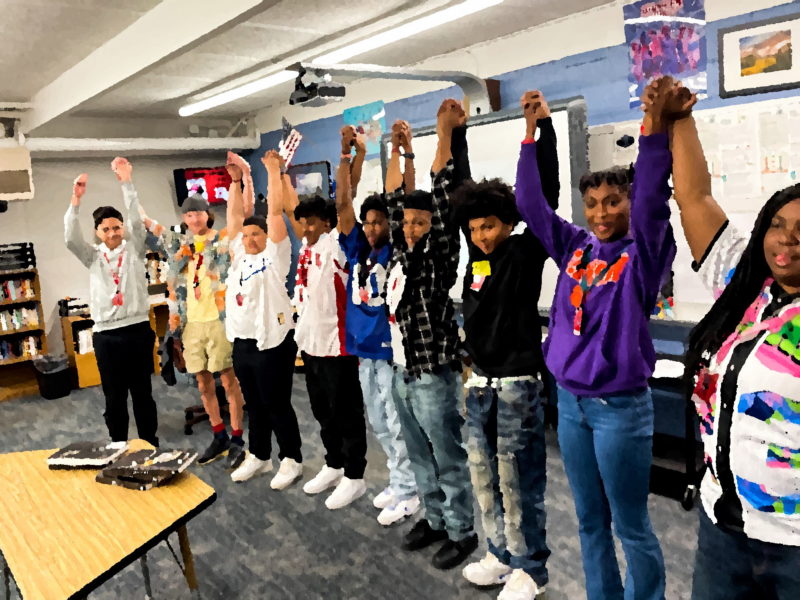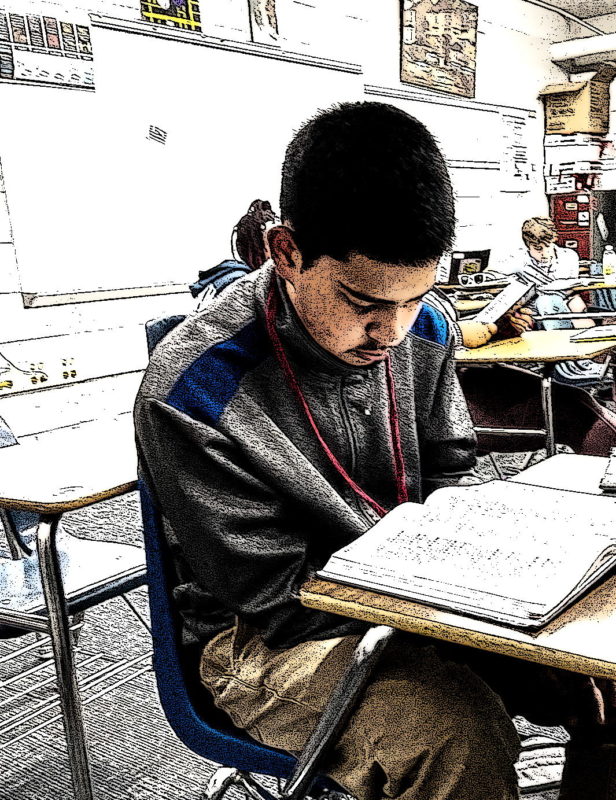That fifth period can be a tough group of kids. They sometimes disregard what’s going on in class to have a little private conversation that is not at all private because of the number of participants and the volume of their voices. They sometimes ignore simple instructions. A few of them are capable of being truly disrespectful to other students, to me, and by proxy, to themselves.
Yet by and large, they’re a great group of kids. They’re just typical 14-year-olds, many of whom come from less-than-perfect situations and have developed less-than-perfect habits. In my teaching career, there have only been a handful of students that, as humans, I didn’t like, I just didn’t trust. In almost 25 years of teaching perhaps four or five such kids. There are no such kids in this group.
But they can be tiring.

These final weeks of school, we’re going through The Diary of Anne Frank. Why do such an important piece in the waning, testing-ladened final quarter of the year? That’s when the district requires it. It might be a good thing, though, because these kids are more engaged now than they’ve been all year: more focused, more involved, more eager in their participation.

Plopped down in the middle of this is L, a young man from Mexico who speaks not a word of English. Not a word. Well, no, that’s not true: he spoke not a word of English when he arrived last week. He’s already picked up quite a bit. And today, he was able to follow along with the play, even though he didn’t understand 95% of what the kids were saying.
“Where do you think we are?” I’d ask through my phone using Google Translate. He’d point to where we were — each time, dead on. “Great!” I’d say. His smile was ear to ear.
0 Comments